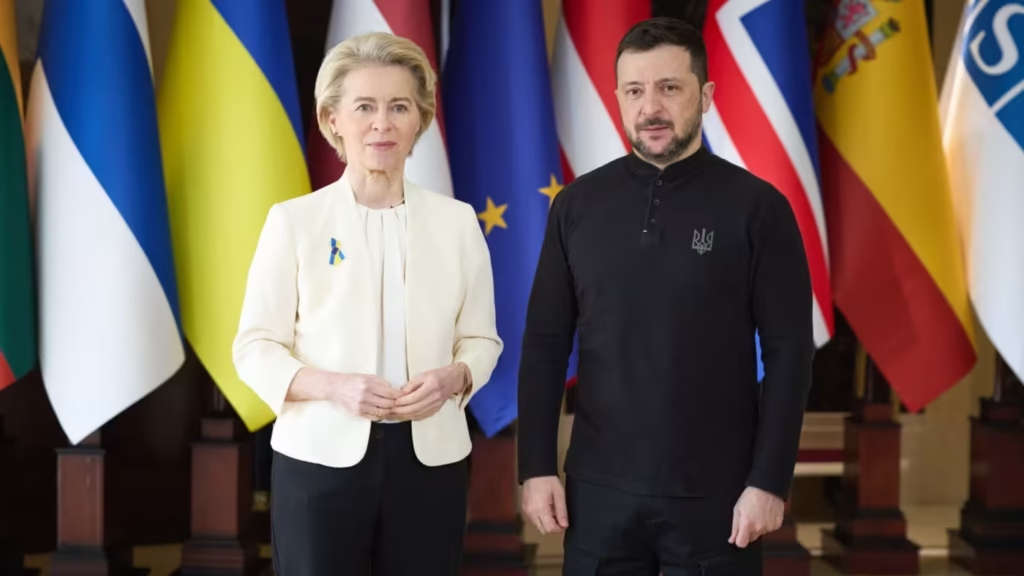The United States and Europe are locked in tense negotiations at the United Nations and G7 over the question of accountability for Russia’s ongoing war against Ukraine. This conflict has been exacerbated by a notable shift in stance from former President Donald Trump, which threatens to fracture the longstanding unity among Western nations.
This week, the Trump administration and the European Union have submitted competing resolutions at both the UN Security Council and the General Assembly. As G7 diplomats engaged in discussions over the weekend, a key point of contention emerged: whether a forthcoming joint statement from the wealthy nations would explicitly refer to Russia’s “aggression” against Ukraine.

Officials have indicated that, without a last-minute compromise, the U.S. could align itself with Russia and China, thus undermining a Western-supported initiative aimed at showing solidarity with Ukraine. EU chief diplomat Kaja Kallas expressed her concerns, stating, “If we look at the messages coming from the United States, it is clear that the Russian narrative is very strongly represented.”
Trump’s recent push for a swift resolution to the conflict, along with his initiation of bilateral peace talks with Russia and his increasingly contentious exchanges with Ukrainian President Volodymyr Zelenskyy, have disrupted three years of unified Western denunciations of Moscow’s invasion, which began in February 2022.
In a symbolic move to mark the third anniversary of the war, Ukraine, alongside the EU, has drafted a UN resolution condemning Russia’s invasion. This resolution is slated for a vote among the General Assembly’s 193 member states on Monday afternoon.
However, sources reveal that the U.S. has called for the withdrawal of this resolution. Instead, Washington is advocating for its own text that equates the actions of Ukraine and Russia, expressing sorrow over “the tragic loss of life across the Russian Federation-Ukraine conflict.” This proposed wording has been met with strong opposition from European officials, who characterize it as part of a troubling shift in U.S. policy.
France, with backing from its European allies, has suggested an amendment to the U.S. resolution, asserting the need to acknowledge “Russia’s invasion of Ukraine” and reaffirming Ukraine’s “sovereignty, independence, unity, and territorial integrity.” Should this amendment be disregarded, a significant number of European nations may opt not to support the resolution, although some may diverge from the EU’s collective stance to back the U.S.
As the Security Council convenes later today, European representatives are expected to reintroduce their amendment, but they face the possibility of a veto from Russia and China. The situation is further complicated for France and the UK, both permanent members of the council, as they must decide between vetoing the U.S. resolution or abstaining, potentially allowing it to pass.
Meanwhile, the G7 leaders held a virtual meeting on Ukraine, where a source reported an “agreement in principle” on a compromise text. However, Trump’s insistence on tying this agreement to the UN resolutions has created additional friction. Last week, the U.S. declined to support a G7 statement that categorized the conflict as “Russian aggression.” U.S. Defense Secretary Pete Hegseth reiterated this stance over the weekend, stating that the situation remains “very complicated.”
As the diplomatic battle unfolds, the implications for Western unity and the future of Ukraine remain uncertain, underscoring the complexities of international relations in a time of crisis.


